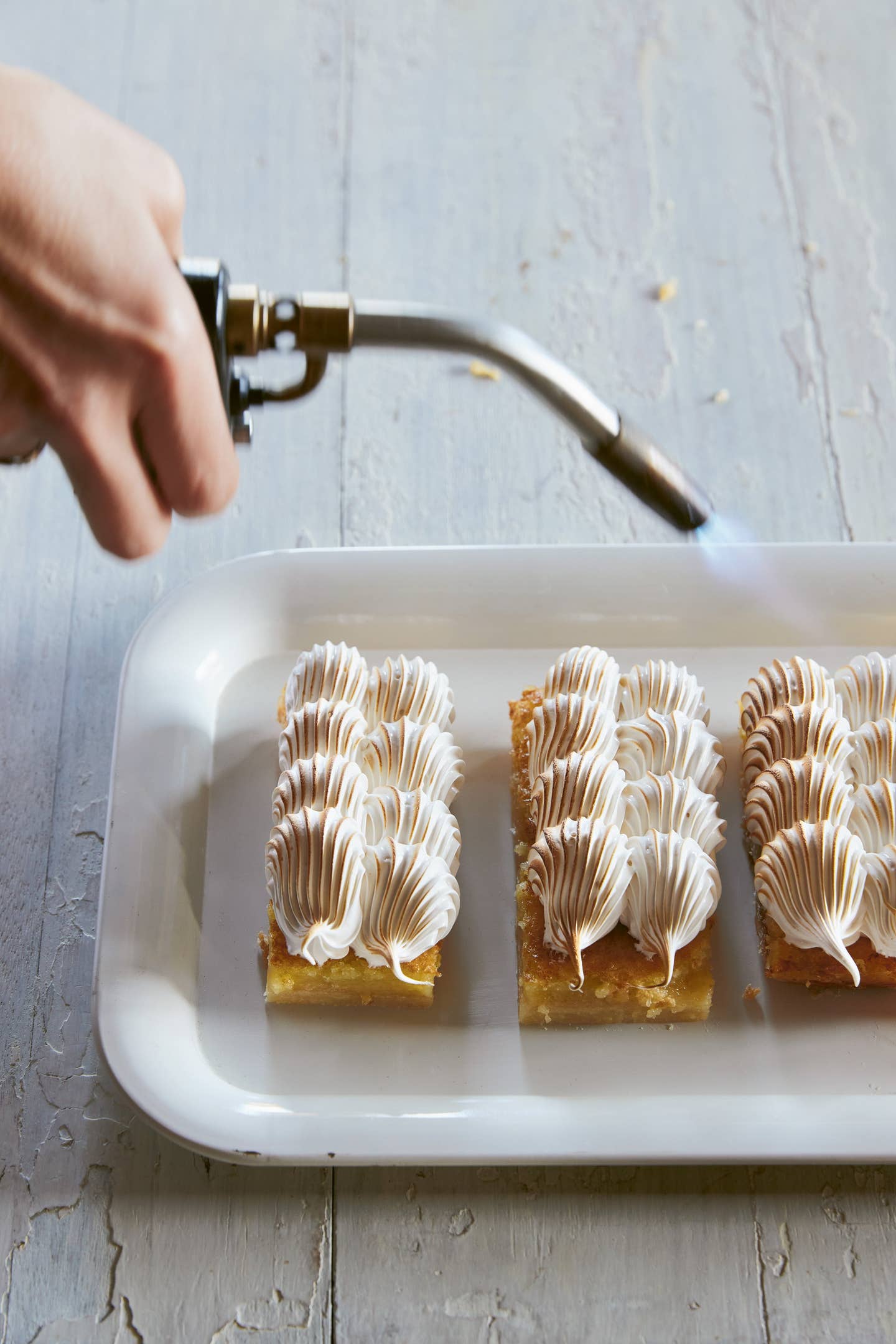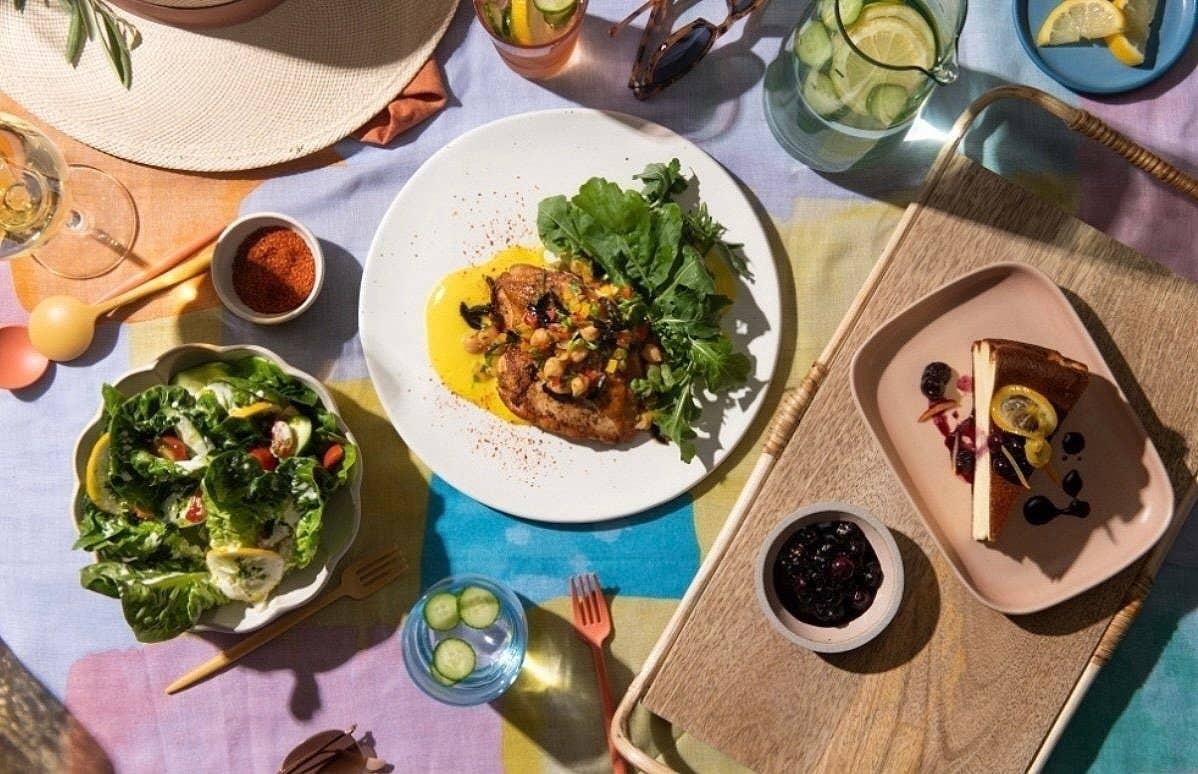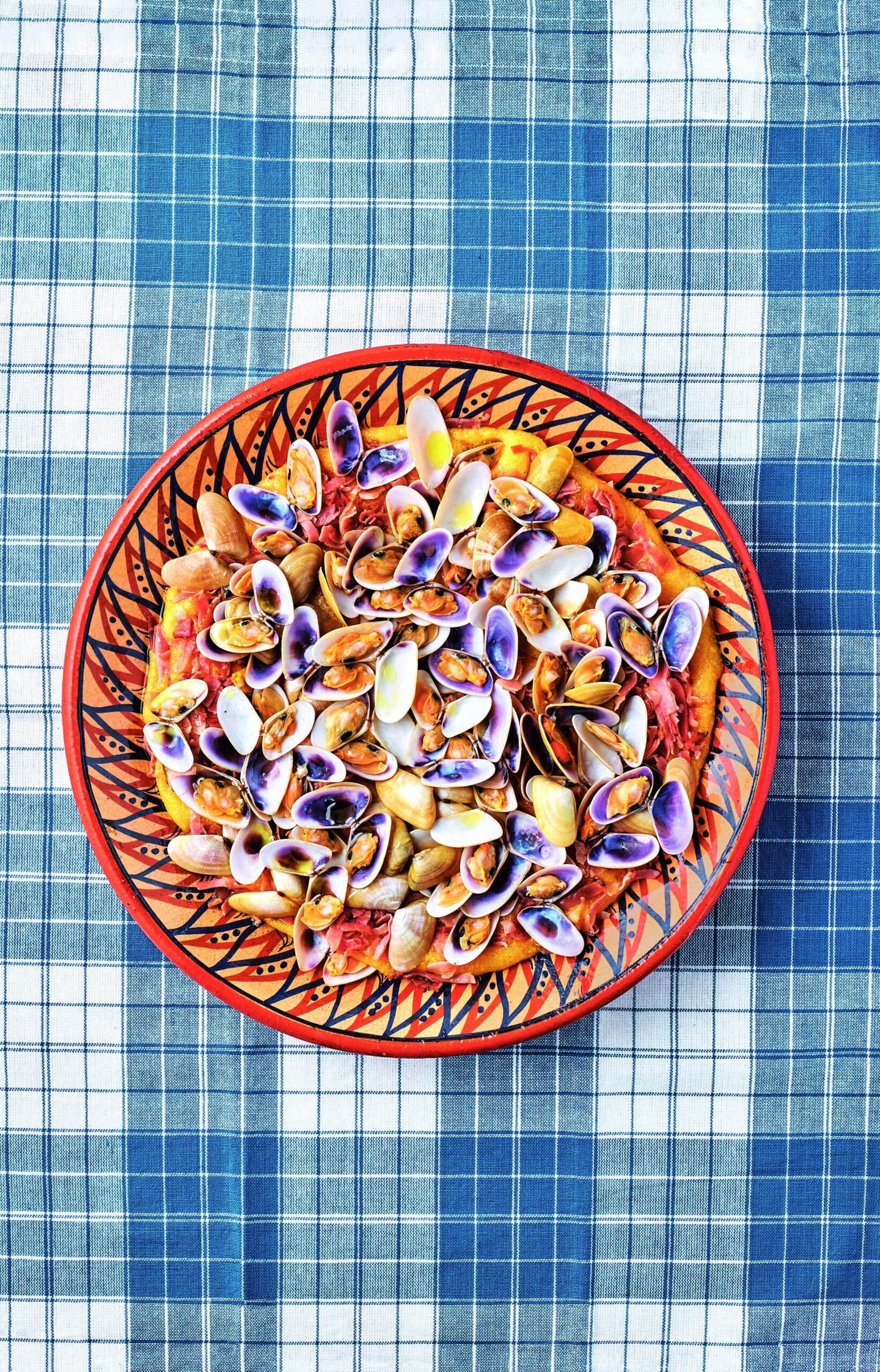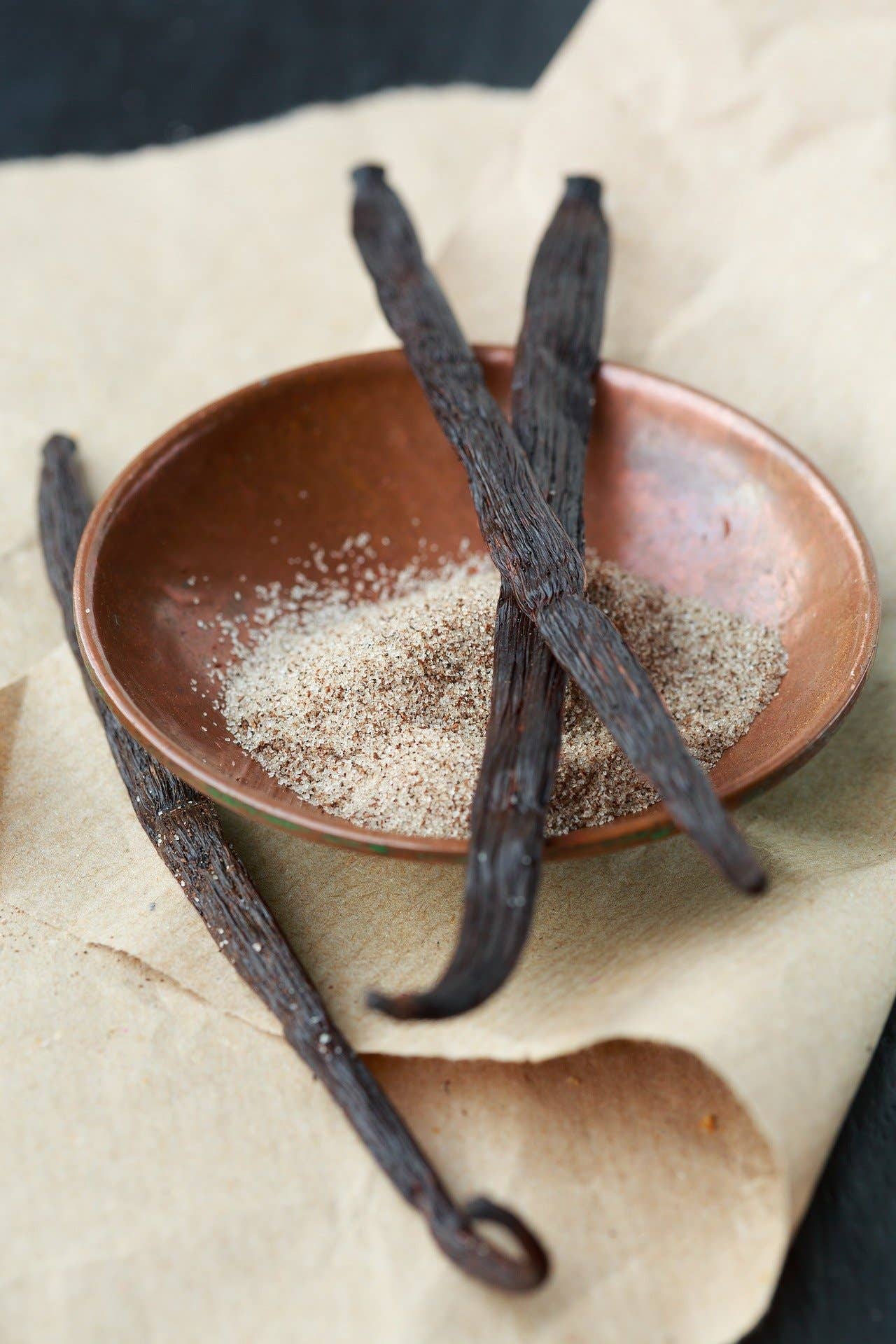Food writer Jesse Szewczyk has compiled 75 recipes and stories, all contributed by notable cooks and celebrities from across the queer community—people like Ted Allen, Jesse Tyler Ferguson, Julia Turshen, and LA’s own famed restaurateur Susan Feniger—that highlight so many realms of diversity from a wide range of voices, and in the most delicious way possible. The essays—some of which will induce tears, and some others, immense joy—make this title truly unique in the big wide world of cookbooks.
As the author shares in our Q+A below, the book’s marketing efforts are all about shining a light on each individual’s contribution—attaching real voices to stories that are dripping with love, pride, hope, adversity, acceptance, struggle, and the important role that food can play in that journey.
Although it certainly delivers the goods, with flavorful, simple recipes like Sean Dooley’s Carrot Salad with Maple Tahini Dressing and Zac Young’s General Tso's Cauliflower, Tasty Pride: Recipes and Stories From the Queer Food Community is not just a cookbook. It’s really an investment in the queer community. Buzzfeed’s Tasty and Random House have committed to donating $50,000 to GLAAD, a prominent nonprofit dedicated to accelerating the acceptance of the queer community in media, and beyond, for decades.
eLA: Did you experience a lot of bro-culture stereotypes when you worked in kitchens? I have to say that, of the handful of reasons working in restaurant kitchens never appealed to me, that was one of them—they can be really dark places. I’m curious to know more about how that affected you.
JS: After graduating college, I staged at one of the most popular fine-dining restaurants in Chicago. I distinctly remember a chef cornering a cook in the basement and yelling at him. The cook was on the verge of tears, and the whole experience made me feel uncomfortable. During that same stage I was yelled at for wiping down a countertop wrong, and the chef used a somewhat inappropriate analogy to describe what I was doing wrong. I never worked full-time in one of these types of restaurants, but what little I saw made me realize just how dated and unhealthy fine-dining culture can be. I've only worked as an employee in three restaurant kitchens, and have been lucky to find mentors who have supported me at each, but I know that that is not the norm.
Fast forward to just a few years ago when I staged at Dirt Candy in New York City. The chef, Amanda Cohen, has a reputation for running a more inclusive, healthier kitchen, and the experience was eye-opening. Not only was the food incredible, but the kitchen was a joy to work in. It's crazy just how much kitchen cultures can vary, and I can only hope that more and more chefs take cues from Cohen's leadership.
eLA: What advice would you give to a young cook who's feeling out of place in a restaurant kitchen environment?
JS: There is a huge community of queer cooks, chefs, bakers, and pastry professionals who are wildly successful and just like you. If anyone puts you down for being queer, they are insecure and threatened. The queer food community is incredibly supportive, and almost all of us have felt out of place at one time or another. Remember that you are not only welcomed in kitchens, but vital. Your cooking style, culinary point of view, and story is necessary for driving the industry forward. Never doubt yourself, your talents, and whether or not you belong in the kitchen, because you do.
eLA: And how did you make the shift from restaurant cook to working in food media?
JS: I spent the first few years of my career working in kitchens; a combination of R&D jobs and restaurant jobs. I was always drawn to food media, but never knew how to get in. I took an internship at BuzzFeed writing about food in my mid-twenties (a career jump that took me from a culinary director role to intern) that eventually led to a full-time job. It was a risk, but it paid off, and I am so grateful that I get to do this for a living.
eLA: As you say in the book’s introduction, you asked each contributor to share how food has shaped their identity. Is there a particular story that really resonates with you?
Every story feels special to me, so picking out a favorite feels like picking a favorite child! One of the first submissions I received was from Brian Hart Hoffman from Bake from Scratch. At the time, I had no idea what the recipes and headnotes would look like, and the moment I received his submission I began crying. He contributed a recipe for wedding cake cookie sandwiches with an accompanying headnote that detailed his childhood love of weddings. As he grew older and realized he would never be able to have one himself, his love faded. But when legislation changed, he drove to Seattle to legally marry his husband (this was in 2013, before nationwide ruling) and finally made peace with them. The headnote made me so excited to see how the other contributors would connect their identity with food, and I am so grateful he shared that story.
eLA: For the first time in history, Pride events all over the world have been canceled or postponed. Do you think “Virtual Pride” is going to feel as celebratory and inclusive? Do you have any creative plans for participating in Pride Month this year?
JS: "Virtual Pride" is only accessible to people who have access to the internet, so it's inevitably going to exclude some individuals, but that doesn't mean it's not important. The importance of celebrating the history and impact of the LGBTQ+ community cannot be stressed enough, and if a digital format is all we have this year then that's better than nothing. It's also important to stress that Pride isn't exclusive to June. It's unfortunate that events have been canceled, but businesses, media companies, and large corporations should be reinvesting in the community every month of the year, so this shouldn't be viewed as a wash.
This year I'm planning to continue highlighting individuals in the book. By using Tasty's platform to shine a light on them, the queer food community as a whole shines, and I could think of no better way to celebrate.
eLA: It must be kind of a bummer to release this community-driven book while we’re all in quarantine. It feels like we should all be gathering to share these stories and cooking these recipes together. How are you celebrating the release of the book?
JS: Yes, it's definitely a bummer. I would love to be able to come together and celebrate the book we made together, but on that front we will have to wait. Luckily the book's big-picture goals have not been impacted. It's still spreading positive representation and stories of hope, introducing readers to talented people they might not be familiar with, and driving money back into the community.
Tasty has been working on a few creative ways to celebrate the release of the book. The main goal is to highlight the contributors, so each week Tasty will be highlighting a different contributor on their social media channels and spotlighting their work. We want all marketing and online celebrations to focus on the contributors.
Editor’s Note: Join LA’s first-ever virtual Pride Parade. For more information on the All Black Lives Matter march happening this Sunday, June 14, see here.





